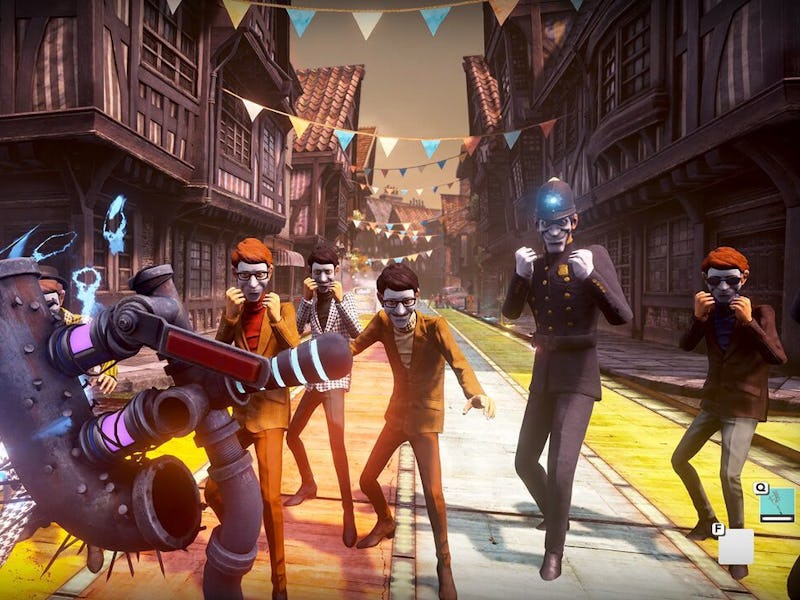Get Excited for Thatcherite, Pill-Popping Mayhem
In Wellington Wells, you're either a Downer or a Joy-taker.

“Wellington Wells is always a delightful place. If you just do like everyone else is doing and take your Joy, you’ll have a splendid time. And if you don’t…one less mouth to feed, eh?”
This message comes as a warning to the citizens of a fictional British town in the trailer for We Happy Few, a new single-player game out now for early access release. In the game, created by Montreal-based developer Compulsion, you’re either a pill-popping citizen or one of the “dangerous maniacs” who doesn’t take their Joy. The game imagines the year 1964 as a dystopian society – in which the Germans won World War II, and the British people have done something unspeakable to take their world back. The British government distributes the happy drug in order to suppress all memory of what happened, thereby keeping its citizens quiet and complacent.
When a newspaper censor stops taking his Joy and becomes a “downer,” he starts remembering past events and tries to escape the city. He has to learn to survive and avoid detection by the drugged-up townspeople around him.
We Happy Few is creepy for many reasons — including the chipper narrator whose voice runs icily down your spine — but particularly because it plays on our fears of the growing prevalence of mood-altering drugs. It shows us a society that has been drugged beyond recognition.
In the past two decades, antidepressant use has grown tremendously. Prescriptions for antidepressants in the U.S. have risen 400 percent since 1988, according to data from the Centers for Disease Control. More than one in 10 Americans over the age of 12 now takes an antidepressant medication, and these rates are on the rise worldwide. And antidepressants, or SSRIs, are being used to treat more than just depression, their namesake; in many cases, these drugs are used off-label to ease everything from bipolar to anxiety disorders to OCD.
Experts say the meteoric rise in anti-depressant use does not necessarily point to an increase in mental illness, but instead to a breaking down of the stigma behind taking mood medication. In the last year alone, the Health and Social Care Information Centre in the UK, where We Happy Few is based, reports a higher increase in antidepressants than any other prescription medication.
The mime-like white faces of the citizens of Wellington Wells show us what we never want to become: drugged zombies whose personalities have been fundamentally changed by so-called happy pills. Anyone who doesn’t conform to their amicable, Joy-induced state is automatically the enemy and forced to fight for their lives. With antidepressants becoming so common, the fear of becoming a “downer” is a little too real.